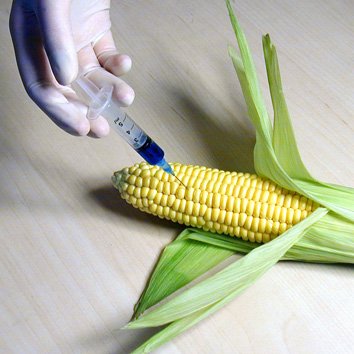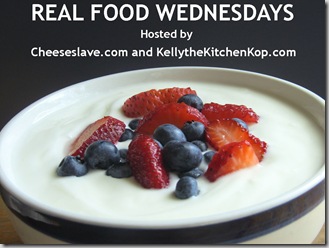The Dirty Dozen
 I had this information in my Hug Me! I’m Organic! post, but I keep wanting to have a list to which I could refer. So, I thought I make it a separate, easy to find post.
I had this information in my Hug Me! I’m Organic! post, but I keep wanting to have a list to which I could refer. So, I thought I make it a separate, easy to find post.
The Environmental Working Group (EWG) performed more than 43,000 tests for pesticides on various types of produce in thousands of samplings. Their computer analysis revealed that consumers could reduce their exposure to pesticides by almost 90 percent by avoiding just the most contaminated fruits and vegetables. They came up with a list of the most pesticide-laden produce varieties.
As you look at this list, realize that it’s not just the whole apple that you can purchase in the produce section. Consider apple juice as well. Read labels and realize what you’re buying.
- Peaches
- Apples
- Sweet Bell Peppers
- Celery
- Nectarines
- Strawberries
- Cherries
- Lettuce
- Grapes (imported)
- Pears
- Spinach
- Potatoes
 There are other produce types for which it is fairly unnecessary to pay more for organic. These foods regularly test clean of pesticides and either have a hard outer skin or don’t retain pesticides well, if at all.
There are other produce types for which it is fairly unnecessary to pay more for organic. These foods regularly test clean of pesticides and either have a hard outer skin or don’t retain pesticides well, if at all.
- Onions
- Avocado
- Sweet Corn – frozen
- Pineapple
- Mango
- Sweet Peas – frozen
- Asparagus
- Kiwi
- Bananas
- Cabbage
- Broccoli
- Eggplant
In other words, it may pay in health benefits to buy Organic peaches, but you get almost no benefit from paying extra for Organic bananas.
That said, corn is such a product of genetically modified food (GMO’s) that I couldn’t even find organic corn seed until I went to Whole Foods and paid $2.30 per pack of 16 seeds. So, even though they test low on the pesticide list, we don’t purchase any corn product unless it’s organic – because GMO’s cannot be found in foods labeled organic.
The most common genetically modified foods are:
 soybeans (which are everywhere – read labels and you’ll see “soy” in almost everything that’s processed – even simple “vegetable oil” is actually “soybean oil”)
soybeans (which are everywhere – read labels and you’ll see “soy” in almost everything that’s processed – even simple “vegetable oil” is actually “soybean oil”)- corn (which also means any kind of corn sweetener, corn flour, corn meal, etc. Start reading labels and look for “high fructose corn syrup” and you’ll be amazed at how often corn is in your products!)
- canola
- rapeseed oil
- milk (rBGH, or recombinant bovine growth hormone is created from genetically modified bacteria, makes cows produce more milk. Milk from cows treated with rBGH is banned in the European Union and Australia, but it’s legal in the United States, and there are no FDA requirements about labeling milk as coming from rBGH cows.)
If a food is found in the “dirty dozen” or the common genetically modified list, I only purchase organic. Otherwise, I’m really not as strict about it as some.
Hallee
I’m so grateful for your visit, today.
You would bless me if you added me to your ![]() feed reader or subscribed
feed reader or subscribed  via email.
via email.
You can also become a fan on ![]() Facebook or follow me on
Facebook or follow me on ![]() Twitter. I would love to see more of you!
Twitter. I would love to see more of you!
This post was linked to:



We have just started to really go organic on our fresh produce and I’m happy to see that our EvilMart is carrying more and more of organic items since it is a 20 minute car ride (and Whole Foods is about an hour).
As far as the milk/dairy products, most companies in this area have pledges on their carton that they use milk from farmers who do NOT use the growth hormones in their cows. I think many local(ish) dairy co-ops are against using the hormones.
We are trying to get away from soy and corn products although that is easier said than done. Making everything from scratch helps a ton for sure. Do you have any substitutes for corn starch or corn syrup? I know many of my homemade recipes for desserts call for these things, but I am ignorant on what to use as a substitute.
Arrow root flour is a good substitute for cornstarch. Tapioca powder works well, too.
Corn syrup in recipes can be substituted with 1 1/4 cup sugar and 1/4 cup water.
Of course, if you buy organic corn syrup and cornstarch, you’re getting non-GMO products.
Is EvilMart Wal-mart? Our Wal-Mart has absolutely no organic produce. I don’t go there for groceries at all.
Yes, EvilMart is Wal-mart. ;)
We are thankful that they are carrying more and more organic items (found a pound of organic carrots there last week for 98 cents). Their produce has definitely improved over the last couple of years. Unfortunately, sometimes organic is out of our price range unless we find it there. We also have local supermarket chains that are getting more into organic which also helps the price go down. I’ve begun searching circulars each week to get a feel for what’s out there and once in awhile it makes sense to hit the actual grocery stores.
Thanks for the suggestions. I’ll be on the lookout for arrow root flour/tapioca powder.
Gotta love the basics. Every mama needs a copy of this list on the fridge and in her bag so she can shop better. It’s so important to get it out there and I myself have failed to do that. Thanks for being on the ball!
sounds great!